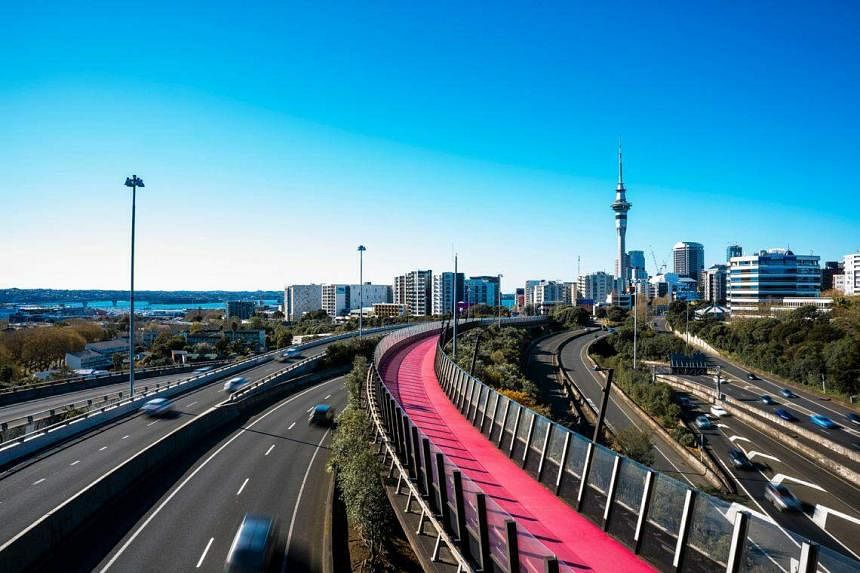WELLINGTON - The ultra-wealthy appear to be losing interest in New Zealand. A new investor visa, aimed at luring high-net-worth individuals who can pour millions of dollars into the nation’s companies, has attracted just 14 applications since it was launched about six months ago.
That compares with 492 applicants to the country’s old visa programme in 2021, before it tightened the rules to require bigger sums of money and ruled out investing in real estate.
The changes were implemented as governments around the world grapple with a conundrum: They want cash from overseas investors, but the politics surrounding visas for wealthy foreigners are often fraught, especially as locals face higher housing costs.
New Zealand politicians are acutely aware of this tension – six years ago, there was a public uproar when it emerged that tech billionaire Peter Thiel was granted citizenship in 2011 despite having spent only 12 days in the country in the five years preceding his application.
The dearth of applicants for the new visa suggests the country may have gone too far, said Mr Marcus Beveridge, managing director of Auckland law firm Queen City Law, which advises people looking to immigrate to New Zealand.
The first 10 applicants to the new programme had a combined NZ$111 million (S$93 million) in funds to invest. In comparison, the old programme raked in an average of NZ$1 billion each year over the past decade.
“It’s an embarrassment, the whole thing,” Mr Beveridge said. “I call it gross negligence from the government to allow this to happen to something that was really important to the economy.”
Government officials are not concerned about the slow start to the new visa programme. They argue that investors and their advisers need time to digest the nuances of the updated requirements, and that applications will eventually increase.
The programme will be reviewed later in 2023 to make sure it is working well, the government said.
Wealth gap
Visa programmes aimed at wealthy investors rose in prominence during the Covid-19 pandemic. But three years after the virus shut down much of the global economy, there is growing backlash. Britain, Ireland and Portugal have closed down their “golden visas” programmes amid concerns over fraud and the perception that foreign buyers were driving up housing prices.
Singapore tightened its investor visa criteria, while Hong Kong is launching a new programme where applicants can gain residency by investing in local assets, but not in property.
New Zealand’s old investment visa programme was particularly popular with wealthy Chinese investors, and was criticised by the government for attracting passive investment in shares and bonds rather than directly into New Zealand businesses.
The country shut down that programme last July and the updated version has been active since Sept 19. The biggest changes are the amount of money and the type of investment, with direct financing of New Zealand firms prioritised.
The minimum threshold ranges from NZ$5 million for direct investment to NZ$15 million for passive investment in listed equities, compared with a NZ$3 million starting threshold under the old criteria. Bonds and property, historically popular investments in New Zealand, are no longer eligible.
Bottom of the world
The change comes after more than a decade of New Zealand being a top destination for global elites, including from the United States tech industry, looking for a remote haven to ride out political instability.
But the Thiel case saw the Kiwi government accused of turning citizenship into an asset wealthy foreigners could buy.
Mr Thiel, a German-American who co-founded PayPal, did not gain citizenship via the usual investor visa.
His application was approved by the government on the grounds that his entrepreneurial skills and philanthropy were beneficial to the country, even though he did not meet the standard criteria or intend to live there.
Still, it is possible that New Zealand’s moment as a global sanctuary has passed.
Its success at keeping Covid-19 at bay in the early stages of the pandemic made it appealing as a refuge, but now it is competing against many other countries in what has become a highly competitive market for golden visas, particularly in the Asia-Pacific region.
Dr Timothy Fadgen, a senior lecturer in politics and international relations at Auckland University, said that while New Zealand has a strong international reputation as offering both good business conditions and quality of life, investors consider many factors when comparing destinations.
“Certainly, one could say that New Zealand is not the only show in town, and those (countries) with greater urban centres or closer to Asian markets will certainly have great appeal to some investors,” said Dr Fadgen.
“I expect the numbers of applicants drawn to New Zealand by this programme to be relatively modest.” BLOOMBERG

